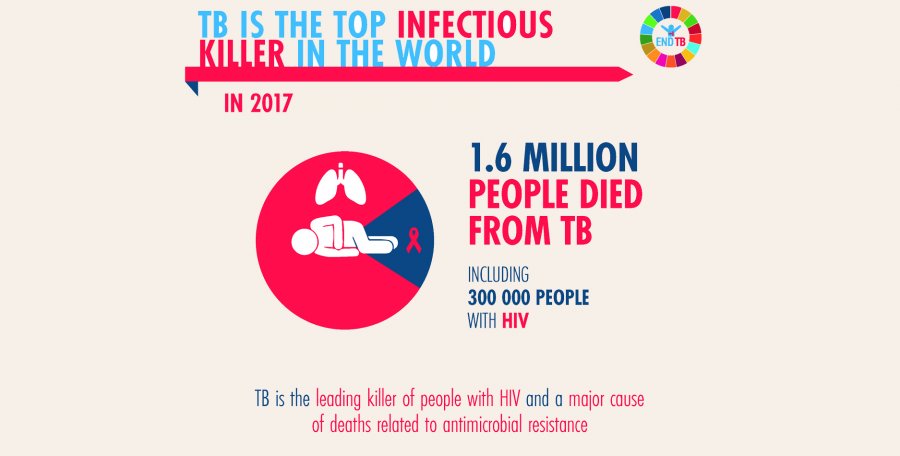Tuberculosis experts hail historic week in the fight against TB
27 September 2018 London School of Hygiene & Tropical Medicine London School of Hygiene & Tropical Medicine https://lshtm.ac.uk/themes/custom/lshtm/images/lshtm-logo-black.png
LSHTM’s TB Centre was invited to the first-ever United Nations high-level meeting on TB which marked a significant moment in the quest to meet a global target of ending TB by 2030. Bringing together heads of state and ministers, professionals and academics the event in New York demonstrated firm commitment to the fight and the need for stronger global efforts and investment.
TB is the world’s deadliest infectious disease, mainly affecting the lungs. It is responsible for almost 5,000 deaths every day and no country has managed to eradicate it. Strategies to rid the world of the illness have faced numerous challenges including stigma, resistance to antibiotics and the limited efficacy of the BCG vaccine. Two major international studies involving LSHTM experts were published during the week of the event which offer fresh hope for better prevention and treatment options in the future.
Helen Ayles, Professor of Infectious Diseases and International Health at LSHTM, was Principal Investigator for one of the sites in a clinical trial of a promising new vaccine candidate unveiled in the New England Journal of Medicine on Tuesday.
Commenting on the findings, Richard White, Professor of Infectious Disease Modelling at the London School of Hygiene & Tropical Medicine and Director of the TB Modelling and Analysis Consortium, said: “The hugely useful BCG vaccine is great at protecting children from TB but does not protect adults very well. This well conducted study of ~3500 TB infected adults in South Africa, Zambia and Kenya found that the new M72/AS01E tuberculosis vaccine provided around 54% protection against TB disease.
“This is exciting because it suggests that, for the first time, we may be able to develop a vaccine that we can give to adults with presumed latent TB infection, to prevent TB disease. If it works globally, this would be a game changer for global TB prevention.”
In the same journal, an international team published a study involving the sequencing of 10,000 TB genomes from patients across the world, which is key to tackling drug-resistant strains.
David Moore, Professor of Infectious Diseases and Tropical Medicine at LSHTM, was a co-investigator on the two main grants involved, with his research group in Peru contributing most of the strains included from Latin America.
He said: “The findings of this paper indicate that we are entering an era in which rapid genomic tests will enable us to quickly and accurately identify TB drug resistance.
“Technological advances hold the promise of scaling up access globally in the near future, transforming our ability to combat and push back emerging drug resistance, through earlier detection which facilitates implementation of new effective, targeted treatments.”
The TB Centre is home to more than 100 researchers dedicated to reducing the global burden of the disease through the development of effective interventions for prevention, detection and treatment.
Applauding the UN meeting delegates for reaffirming their commitments and recognising that global efforts have been inadequate, TB Centre representatives highlighted the need for prioritising research areas, better engagement between researchers and policymakers, and clear targets to track progress against as they seek to build on the global momentum through their work.
TB Centre Director Professor Katherine Fielding said: “This is a historic week for the global TB community. To realise the sustainable development goals to end TB by 2030 we are in desperate need for new tools as well as using our current tools in innovative ways.
“Publication of two significant papers this week bring exciting news. We welcome the UNGA high-level meeting and the ambitious political declaration on TB endorsed by heads of state. Our commitment to fight against TB is stronger than ever.”
LSHTM's short courses provide opportunities to study specialised topics across a broad range of public and global health fields. From AMR to vaccines, travel medicine to clinical trials, and modelling to malaria, refresh your skills and join one of our short courses today.